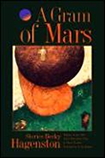Freeze
posted Jan 9, 2006
She waited twenty-four hours before reporting her husband missing. They were in bed when she told Thomas this; he had been wondering how soon he could leave without being rude, but this information made him want to stay a little longer.
“Weren’t you afraid he might be dying?” he asked.
“I was hoping.” She leaned toward him, propped on her elbow. Her body, he had been relieved to discover, was younger-looking than her face, softer and less yellowed. He had thought that southern women would be all smiles and breasts and long-drawn vowels, but this was not the case, at least with the women he’d met. They had sturdy legs and hard faces; they drank Budweiser, not juleps. They told long, sad stories whispered in the dark so their children wouldn’t wake. Not that he’d ever seen any of the children.
This was not his life, Thomas told them, not really. This was a job, a detour, something that circumstance had thrust upon him. He was an educated man who’d had a little bad luck. He had a Ph.D., for God’s sake! He wouldn’t be here for long.
The woman rose from the bed and padded across the room to a small desk. It was late August, a hot night riotous with cicadas. He had met her in a bar two hours earlier, a dark room attached to a motel. She told him to follow her truck to her house, to drive carefully because the cops were out.
She came back to bed with a yellowed piece of the Detroit Free Press, dated fifteen years earlier: Man Found Frozen to Death in Boat.
“He’d had about twenty beers and shoved me against the wall, and when he left I knew he was going to that damn boat.” She was looking at the wall now, though there was nothing to see. “It was probably twenty below with wind chill. When he didn’t come back, I made myself some soup and watched television. Then I went to bed, and in the morning I went to work. I came home and ate dinner and the silence was a relief, you know? I called the cops after twenty-four hours and I was watching 'Jeopardy' when they knocked on the door and told me he was frozen to death in the bottom of his stupid boat.” She looked at him. “So that was that with marriage.”
Sometimes, in the twenty years that followed, Thomas thought about her. He never saw her again, and after a while he couldn’t remember where her house had been. He was waiting for his life to peel away in layers and leave something real and raw underneath, something too raw for the air to touch, something damp and shimmering and exposed to the sun, but this didn’t happen.
There was a soft, southern girl from Laurel, Mississippi, who stared at him limpid-eyed from the first row of the Comp class he taught one year. She wrote a terrible essay about abortion and cried in his office when he gave her a C. She let him pull her sweater over her head and lean her over his tan vinyl chair and, finally, marry her.
One night, near the end of everything, she said, “I was in love with a boy in the back row. That’s the only reason I sat in the front. It was his baby I got rid of.” He knew this wasn’t meant to hurt him; it was just something to crack open the silence.
So he told her about a woman he had met a long time ago who let her husband freeze to death, and she shivered and hunched away from him, saying how evil, how cruel, she should have saved him.
The marriage kept drifting like a car into a ditch, no one’s eyes on the road, and then it was over and he was once again alone, but this time he was older and had no illusions about how long he would be there.
He thinks that if he ever sees that woman again he will tell her that she missed something, squandered it. It was wrong to stay inside watching television in a warm living room. Some things, he wants to tell her, you need to be present for. He would have gone outside and stood in the frozen darkness and the twenty-below wind. He would have closed his eyes and waited until the pain turned him into something that could shatter, and then he would have stood there a little longer before turning and going back indoors.
© 2005 Becky Hagenston








